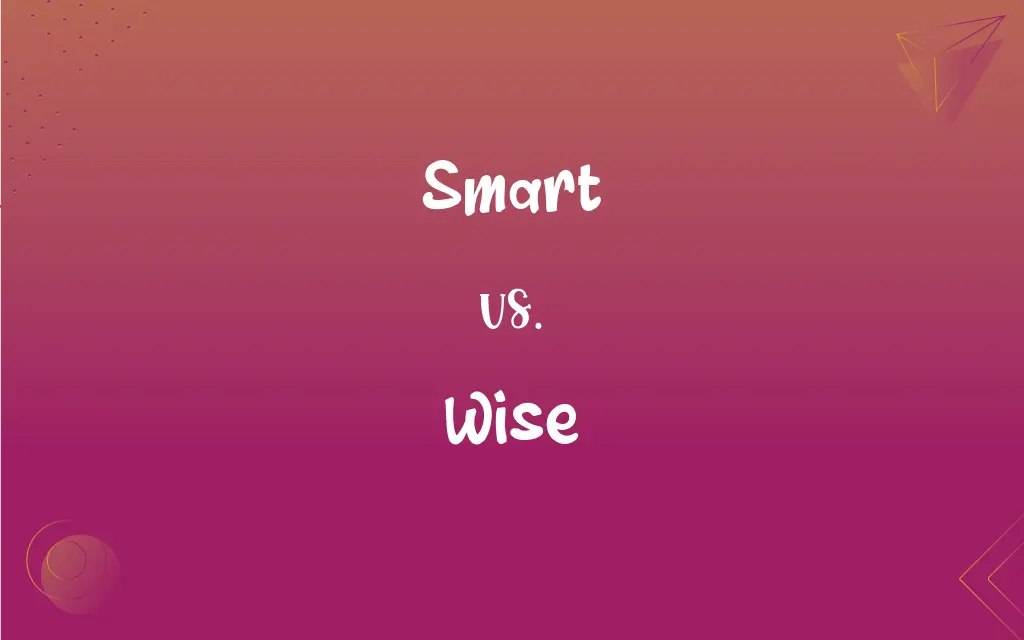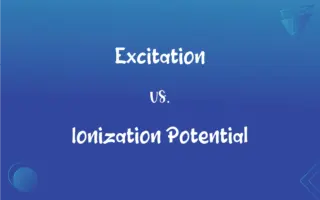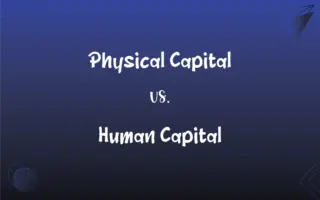Smart vs. Wise: What's the Difference?
Edited by Janet White || By Harlon Moss || Updated on October 19, 2023
"Smart" pertains to intelligence or quick thinking, while "wise" relates to experience and sound judgment.

Key Differences
"Smart" is often used to describe someone who possesses intelligence, the ability to learn quickly, or the aptitude to solve problems efficiently. On the other hand, "wise" refers to an individual who has accumulated knowledge through experience and can make sound judgments based on that experience.
A "smart" person may excel academically, showcasing their ability to grasp complex concepts and theories. Conversely, a "wise" individual might not be academically brilliant but can navigate life's challenges skillfully due to their experiential understanding.
"Smart" often has a more immediate connotation, highlighting a person's sharpness of mind or cleverness in specific situations. In contrast, "wise" suggests depth, indicating a broader perspective born from years of reflection and understanding.
It's possible for someone to be "smart" in terms of logical reasoning but lack the "wisdom" to apply their intelligence in meaningful or beneficial ways. Likewise, a "wise" person may not always be the quickest thinker but will generally make decisions that yield long-term benefits.
In essence, while "smart" leans more toward cognitive abilities and quick-wittedness, "wise" is rooted in life experiences and the discernment that comes with time.
ADVERTISEMENT
Comparison Chart
Primary Connotation
Intelligence, quick thinking
Experience, sound judgment
Basis
Aptitude, cognitive ability
Life experiences, reflection
Temporality
Immediate, in-the-moment
Long-term, over time
Application
Problem-solving, academic achievements
Decision-making, guiding others
Depth
Can be surface-level, specific to a subject
Broad, encompassing life's complexities
ADVERTISEMENT
Smart and Wise Definitions
Smart
Having a quick intelligence.
She's smart enough to solve that math problem in seconds.
Wise
Having knowledge from experience or reflection.
The old man gave wise counsel to the troubled youth.
Smart
Showing mental alertness.
His smart response saved the team from a major error.
Wise
Having the power of discerning and judging correctly.
She made a wise choice by prioritizing her health.
Smart
Painfully severe.
He felt a smart sting from the bee's bite.
Wise
Informed about something specific.
He's wise to the ways of the world.
Smart
Energetic or brisk.
She walked at a smart pace to catch the bus.
Wise
Showing good judgment.
It's wise to save money for unforeseen emergencies.
Smart
Fashionably elegant or sophisticated.
He wore a smart suit to the interview.
Wise
Characterized by wisdom.
Example:* A wise leader listens more than he speaks.
Smart
Having or showing intelligence; bright.
Wise
Having the ability to discern or judge what is true, right, or lasting; sagacious
A wise leader.
Smart
Canny and shrewd in dealings with others
A smart negotiator.
Wise
Exhibiting common sense; prudent
A wise decision.
FAQs
Does being smart automatically make someone wise?
No, being smart pertains to intelligence, while being wise relates to experience and judgment.
Can life experiences make someone smarter?
Life experiences can broaden perspectives and enhance problem-solving skills, contributing to being smart in specific contexts.
Can one become wiser over time?
Yes, as one gains more life experiences and reflects on them, they can become wiser.
How can one improve their intelligence (become smarter)?
Engaging in cognitive exercises, continuous learning, and challenging oneself can enhance intelligence.
Is wisdom a form of intelligence?
While related, they're distinct; intelligence relates to cognitive abilities, while wisdom involves judgment from experiences.
Are there tests to measure how smart or wise someone is?
There are IQ tests for intelligence (smart), but wisdom is subjective and harder to quantify.
Is wisdom always related to age?
While age can bring experience, wisdom is not guaranteed with age. Some young people can be wise beyond their years.
Is it better to be smart or wise?
Both have their merits; being smart helps in learning and problem-solving, while being wise aids in making sound life decisions.
Is being smart hereditary?
While genetics can influence cognitive abilities, environmental factors also play a significant role in being smart.
Can smart decisions always be wise decisions?
Not necessarily. A decision can be smart in the short term but may lack long-term wisdom.
Do all wise people give good advice?
Generally, wise people provide insights based on their experiences, but what's wise for one might not be for another.
Is it wise to always trust smart people?
Not necessarily. Intelligence doesn't guarantee good intentions or sound judgment.
Can education make someone wiser?
Education can provide knowledge, but wisdom often comes from reflection and understanding life experiences.
Can wisdom be taught?
Wisdom often comes from personal experiences, but insights and guidance from wise individuals can foster wisdom in others.
Can someone be considered too smart for their own good?
Yes, if their intelligence leads to overthinking or complicates simple situations.
Can one's environment impact how wise they become?
Yes, environments filled with diverse experiences and challenges can foster wisdom.
Can someone be both smart and wise?
Yes, a person can be both intelligent (smart) and possess sound judgment (wise).
Are wisdom and knowledge the same?
No, knowledge is having information, while wisdom is the ability to use that information judiciously.
How does culture influence definitions of smart and wise?
Cultural values can shape what is considered intelligent or wise in different societies.
Does reading make one wiser?
Reading can provide knowledge and perspectives, which, when reflected upon, can contribute to wisdom.
About Author
Written by
Harlon MossHarlon is a seasoned quality moderator and accomplished content writer for Difference Wiki. An alumnus of the prestigious University of California, he earned his degree in Computer Science. Leveraging his academic background, Harlon brings a meticulous and informed perspective to his work, ensuring content accuracy and excellence.
Edited by
Janet WhiteJanet White has been an esteemed writer and blogger for Difference Wiki. Holding a Master's degree in Science and Medical Journalism from the prestigious Boston University, she has consistently demonstrated her expertise and passion for her field. When she's not immersed in her work, Janet relishes her time exercising, delving into a good book, and cherishing moments with friends and family.































































